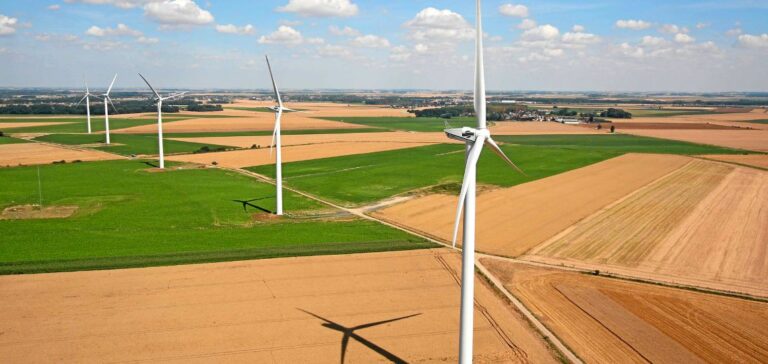The government has asked prefects to “implement all required actions” to accelerate the processing of ongoing renewable energy projects, including onshore wind farms, according to a circular dated Friday and obtained by the website Contexte.
Faced with the energy crisis, four ministers including those of the Interior, Ecological Transition and Energy Transition ask the decentralized services of the State to “put in place all the actions required to facilitate and accelerate the processing of files (…) in progress and to come”.
In total, these files currently under review represent “nearly 10 GW of photovoltaic and wind power projects and about 5 TWh of renewable gas capacity”.
For the government, it is a matter of “ensuring that no instruction exceeds 24 months, except in very exceptional situations”, according to this circular.
The deconcentrated services of the State are also invited to observe “an objective of 18 months between the date of filing of a project of renewal or increase of power of existing wind farms, and its implementation”.
According to Michel Gioria, general delegate of France Wind Energy, the union of wind energy professionals (350 members), the circular aims to accelerate the processing of land-based wind power projects, which are a source of recurrent controversy in public opinion.
“There are 5 GW of projects (onshore wind) awaiting authorization, or 15% of the capacity already installed on the territory, it is considerable,” he stressed.
While the development of wind projects is increasingly opposed, slowing down their deployment, the government wants to pass a bill to speed up procedures and catch up with France’s lag in wind and solar energy.
In February, in a speech delivered in Belfort, shortly before the war in Ukraine, President Emmanuel Macron had set the lines of France’s new energy policy, announcing a vast plan to revive civil nuclear power and the development of offshore wind power, but a brake on onshore wind turbines.
“In the energy situation that we know with winters that are difficult at least until 2025, the unavailability of part of the nuclear fleet and the crisis of Russian gas, wind, solar and methanization are the only means of production that we have to produce megawatt hours more, “said Michel Gioria, General Delegate of France Wind Energy.






















